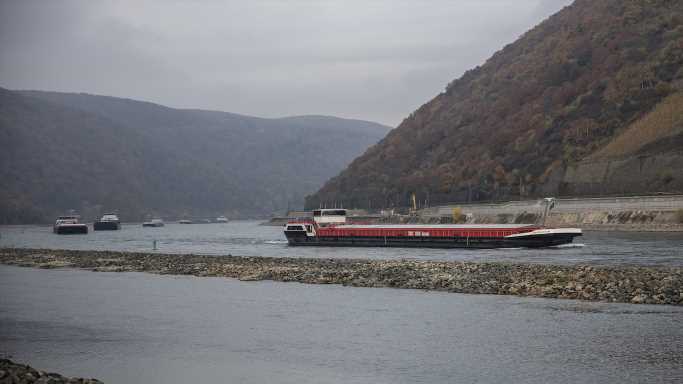This summer’s twin paradoxes of massive flooding and receding rivers and reservoirs opened a dangerous new channel this week with news that some $80 billion in economic trade along Germany’s Rhine River could soon be impeded as shallow waters prevent ships from carrying oil and gas to energy-staved Europe.
Rivers and reservoirs drying up aren’t just about drinking water, irrigation for farmers, or even dead bodies as we’ve seen outside Las Vegas at Lake Mead. They are about hydroelectricity sources to millions, and even more important, vital, economic, river bound trade — especially in emerging markets.
While the Rhine is the largest water trade route inside Europe, most of the biggest trading rivers are in Africa, India, Asia and South America. Consider the Nile, the Yangtze in China, the Amazon in South America, the Ganges in India, and not to mention the Mississippi in the U.S. responsible for more than $14 billion in goods and services last year. All are at some stage of drying up.
Indeed, in Germany we’re about to reach the absurd precedent of climate change actually preventing us from hurting ourselves and the world by shipping more fossil fuels. Even as we are hit by worse and worse flash flooding from rainstorms, the drying of our rivers and lakes is about to cause a water shortage that will change our economies in ways that we still can’t predict.
A risk manager’s nightmare for sure. Especially this week in the European shipping trade.
More insights below . . . .
Zeus: The coming takeover battles for the climate transition
. . . . What if one of the oil giants made a takeover bid for a large wind or solar company? It could happen in today’s market, with most stocks down and oil companies spinning off massive amounts of cash because of higher prices this year. David Callaway looks at the implications for investors, regulators, and politicians from what would be a very new type of energy transition. . . .
Read the full Zeus column
A selection of this week’s subscriber-only insights
. . . . The U.S. solar industry basically consists of two parts: The people who erect solar arrays — on fields and homes — and those who make solar panels. The latter is relatively tiny while the former has been struggling with supply issues. Can incentives from the Inflation Reduction Act help increase domestic production and thus end the shortages that are impacting installers? We check it out. . . .
. . . . The U.S. has been late to the offshore wind power arena, but now it looks like it’s going to take off big time. First, East Coast projects continue apace and now the new climate act is opening vast areas with massive potential. Will it really happen? The examples in Europe suggest it will as well as the cost-benefits. Read more here. . . .
. . . . Three of the biggest renewables deals yet were announced this week wherein one of America’s largest cities and two global companies plan to be 100% renewable by 2025. It’s a dramatic acceleration of the transition to clean energy by the places where we live and work. Can it actually happen in time? It’s part of an emerging pattern where the call by companies and cities to use renewables is driving the renewables industry. Read more here. . . .
. . . . A Swiss multinational has produced the world’s first clinker made entirely of recycled minerals — a giant leap on the road to recycled concrete, which in turn is critical to cutting the great carbon intensity of the cement and concrete industry. Read more here. . . .
. . . . Rock the vote! Gizmodo unveils its “biggest climate ghouls” of the upcoming midterms, including some rather amazing scientific learnings from Georgia Republican Senate candidate Herschel Walker. Check it out. . . .
Editor’s picks: Wilder weather, flood insurance fails and sustainable debt
Few in flood-ravaged Kentucky have insurance
Sustainable debt issuance declines
Companies coping with loss from extreme weather events
Words to live by . . . .
“There are moments when all anxiety and stated toil are becalmed in the infinite leisure and repose of nature.” — Henry David Thoreau.
Sponsored: Find a Qualified Financial Advisor
Finding a qualified financial advisor doesn’t have to be hard. SmartAsset’s free tool matches you with up to 3 fiduciary financial advisors in your area in 5 minutes. Each advisor has been vetted by SmartAsset and is held to a fiduciary standard to act in your best interests. If you’re ready to be matched with local advisors that can help you achieve your financial goals, get started now.
Source: Read Full Article

